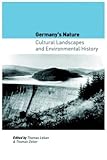Germany's Nature : Cultural Landscapes and Environmental History / ed. by Thomas Zeller, Thomas Lekan.
Material type: TextPublisher: New Brunswick, NJ : Rutgers University Press, [2005]Copyright date: ©2005Description: 1 online resource (276 p.)Content type:
TextPublisher: New Brunswick, NJ : Rutgers University Press, [2005]Copyright date: ©2005Description: 1 online resource (276 p.)Content type: - 9780813536675
- 9780813537702
- 333.72/0943 22
- SD195 .G76 2005eb
- online - DeGruyter
- Issued also in print.
| Item type | Current library | Call number | URL | Status | Notes | Barcode | |
|---|---|---|---|---|---|---|---|
 eBook
eBook
|
Biblioteca "Angelicum" Pont. Univ. S.Tommaso d'Aquino Nuvola online | online - DeGruyter (Browse shelf(Opens below)) | Online access | Not for loan (Accesso limitato) | Accesso per gli utenti autorizzati / Access for authorized users | (dgr)9780813537702 |
restricted access online access with authorization star
http://purl.org/coar/access_right/c_16ec
Germany boasts one of the strongest environmental records in the world. The Rhine River is cleaner than it has been in decades, recycling is considered a civic duty, and German manufacturers of pollution-control technology export their products around the globe. Yet, little has been written about the country's remarkable environmental history, and even less of that research is available in English. Now for the first time, a survey of the country's natural and cultural landscapes is available in one volume. Essays by leading scholars of history, geography, and the social sciences move beyond the Green movement to uncover the enduring yet ever-changing cultural patterns, social institutions, and geographic factors that have sustained Germany's relationship to its land. Unlike the American environmental movement, which is still dominated by debates about wilderness conservation and the retention of untouched spaces, discussions of the German landscape have long recognized human impact as part of the "natural order." Drawing on a variety of sites as examples, including forests, waterways, the Autobahn, and natural history museums, the essays demonstrate how environmental debates in Germany have generally centered on the best ways to harmonize human priorities and organic order, rather than on attempts to reify wilderness as a place to escape from industrial society. Germany's Nature is essential reading for students and professionals working in the fields of environmental studies, European history, and the history of science and technology.
Issued also in print.
Mode of access: Internet via World Wide Web.
In English.
Description based on online resource; title from PDF title page (publisher's Web site, viewed 24. Mai 2022)


